Dry shampoo has been a perfect remedy for women with oily hair since its invention in the 1940s. Like many women, you may ask, “Why does dry shampoo make my hair greasy?”, especially given the numerous positive reviews from women using the product.
There are several reasons why dry shampoo makes your hair greasy. You may be wrongly using the product, it’s of low quality, or you’re applying it in excess. Here’s a comprehensive guide to help you solve the problem, plus a few alternatives to try in case the tips don’t work out.
Why Does Dry Shampoo Make My Hair Greasier?
Dry shampoo can make your hair feel greasier due to product buildup and residue. Dry shampoo absorbs the excess oil initially but overuse or improper application can cause buildup on your scalp and hair. That buildup can make your greasy and dull. To avoid this, use dry shampoo sparingly and follow the application instructions carefully.
Your hair may feel slightly sticky or show some white residue immediately after using dry shampoo, especially during the first few days of use. This is normal; however, there is a problem if your hair remains greasy after using dry shampoo for several days.
There could be various reasons for the greasiness after applying dry shampoo to your hair.
#1. You’re Using the Dry Shampoo Excessively
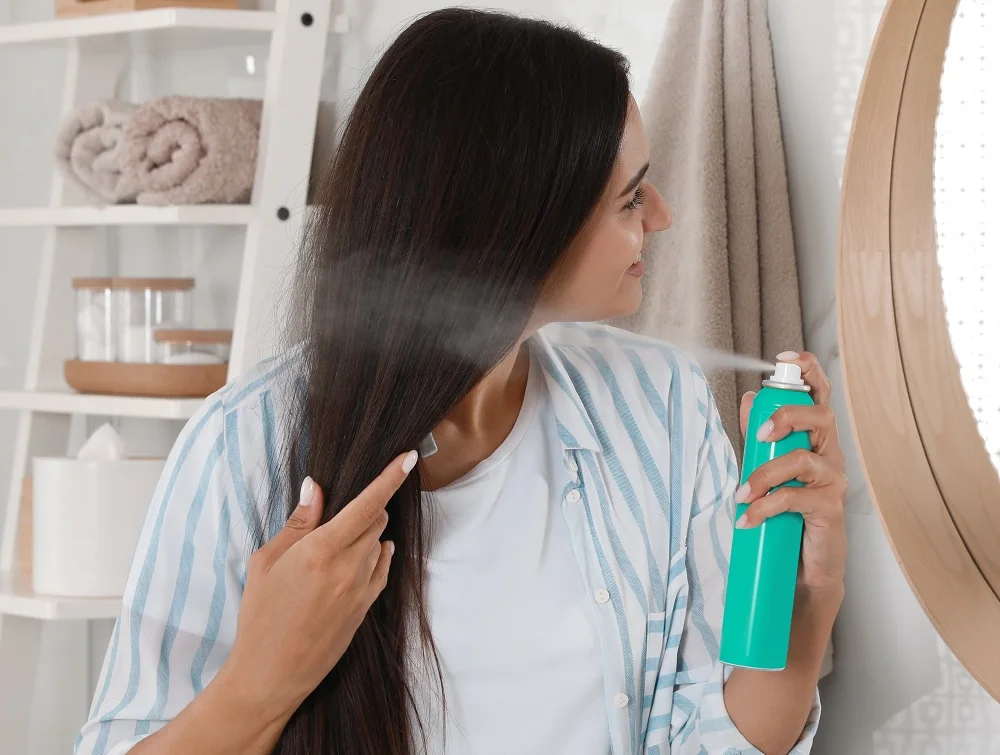
One reason your hair becomes greasy after using dry shampoo is overusing the hair product. For example, avoid using dry shampoo daily, and if necessary, limit its use to a maximum of two consecutive days per week.
Additionally, refrain from using the product multiple times in a single day. Once every 24 hours is sufficient to keep your hair refreshed. To achieve optimal results, apply dry shampoo only once a day and no more than two consecutive days per week.
#2. Using the Product Only on Dirty Hair
Another reason why you may experience greasiness despite using dry shampoo is if you use the product on dirty hair. It’s best to use dry shampoo between washes rather than in place of routine hair washes.
For instance, dry shampoo will be highly effective if you use it on the second day after washing your hair rather than waiting for four or five days after the last wash. Using dry shampoo on dirty or already oilier hair will increase residue accumulation, making your hair greasier.
You can wash your hair thoroughly after every three days and use dry shampoo on the two remaining days.
#3. Your Hair Has Underlying Issues
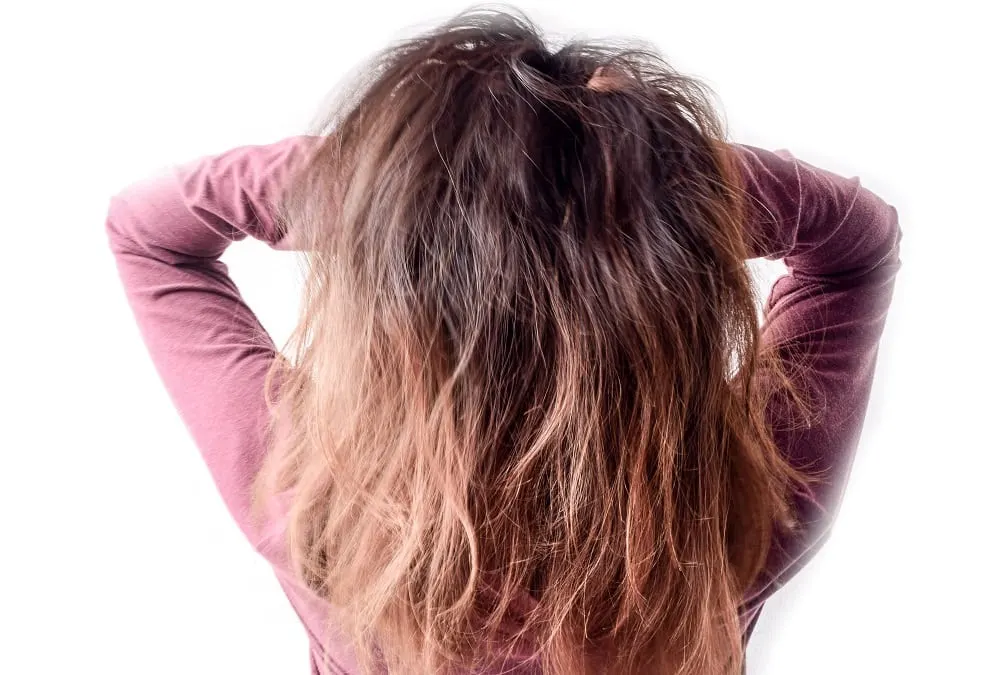
Sometimes dry shampoo isn’t the reason your hair becomes even greasier. Ensure your hair is healthy before using any product.
For example, if your hair was dehydrated before using dry shampoo, your scalp will work harder to moisturize and replenish your hair oils.
When you use dry shampoo during this time, it tries to absorb the oils in your hair, leaving it dry. The more oils the dry shampoo absorbs, the harder your scalp works to replenish and maintain moisture, making your hair greasier.
If your hair is damaged, stop using dry shampoo until you address the issue. Focus on a deep hydration treatment to repair your damaged hair and maintain its health. Hydrolyzed proteins and keratin masks are excellent treatment options.
Follow a proper hygiene routine to ensure your hair is clean, but avoid using sulfate shampoos. You can resume dry shampooing once your hair regains its natural health and moisture.
#4. Your Dry Shampoo Isn’t High Quality
Using a less-quality product can also leave you with greasier hair. The main ingredient in dry shampoo is a dry powder which allows the absorption of the oils when it gets into contact with your hair roots.
Low-quality dry shampoo may contain poor, sticky particles, which increase greasiness in the roots of your hair instead of absorbing the extra fats from your scalp.
#5. You Aren’t Dry Shampooing the Right Way
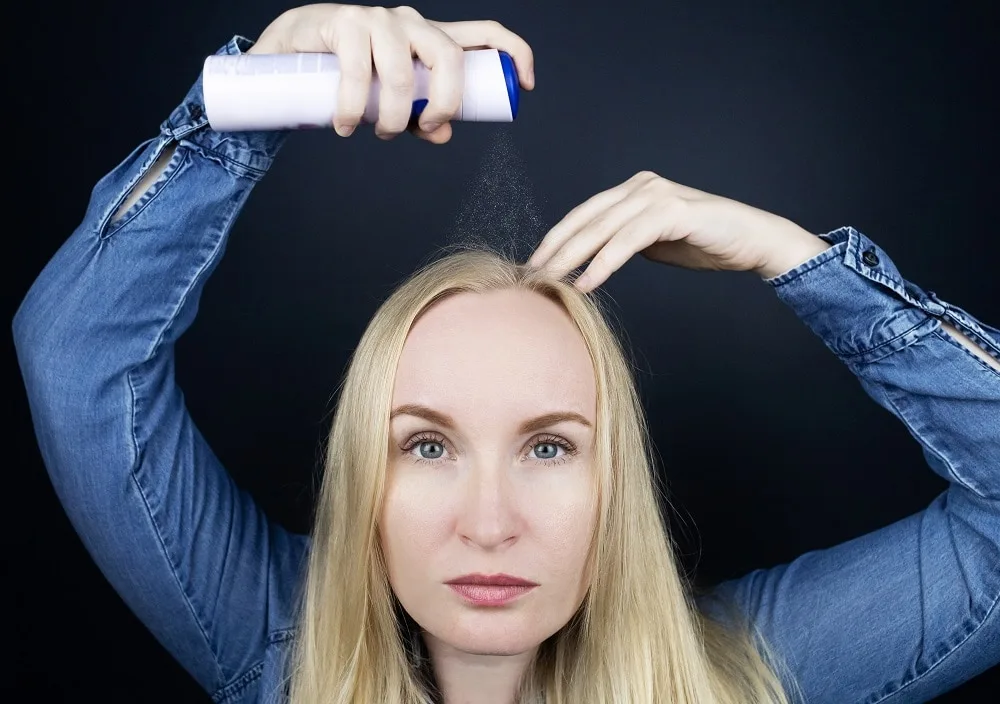
Another reason many people find their hair greasier is the poor use of the product. Either you need to give the dry shampoo more time to settle before brushing it out, you apply it too close to the scalp, or you don’t brush your hair before or after use.
Always spray dry shampoo at least 30 centimeters away from your scalp to ensure it gets evenly distributed. Also, each product has a stipulated time that you should let it settle on your hair before brushing it off.
Let it sit on your hair for five extra minutes beyond the company’s recommended time, and brush it off from the roots to the ends.
How To Fix Dry Shampoo Grease
One of the best ways to ensure dry shampoo doesn’t leave your hair greasy is to practice proper usage. Besides leaving your hair sticky and greasy, improper dry shampooing can also damage your hair and cause numerous problems.
Here are some tips for keeping your hair healthy and reducing the greasiness from using dry shampoo:
- Use dry shampoo only on 100% dry hair.
- Shake the dry shampoo bottle well before use, and apply in small portions, partitioning your hair at every stroke using a wide-tooth comb.
- Avoid using an excessive amount of the products.
- Inspect all the areas of your hair to see if you missed any part, and add the shampoo as you go.
- After dry shampooing your entire head, let the product stay for at least five minutes more than the company-indicated time.
- Massage your scalp gently, shaking your hair to ensure the powder doesn’t adhere.
- Brush off the dry shampoo alongside any oil residues from your hair, starting from the roots to the ends.
- Avoid touching your hair after dry shampooing since the natural oils in your fingertips can easily oil your air again, causing a residue.
Can I Remove Buildup Caused by Dry Shampoo?
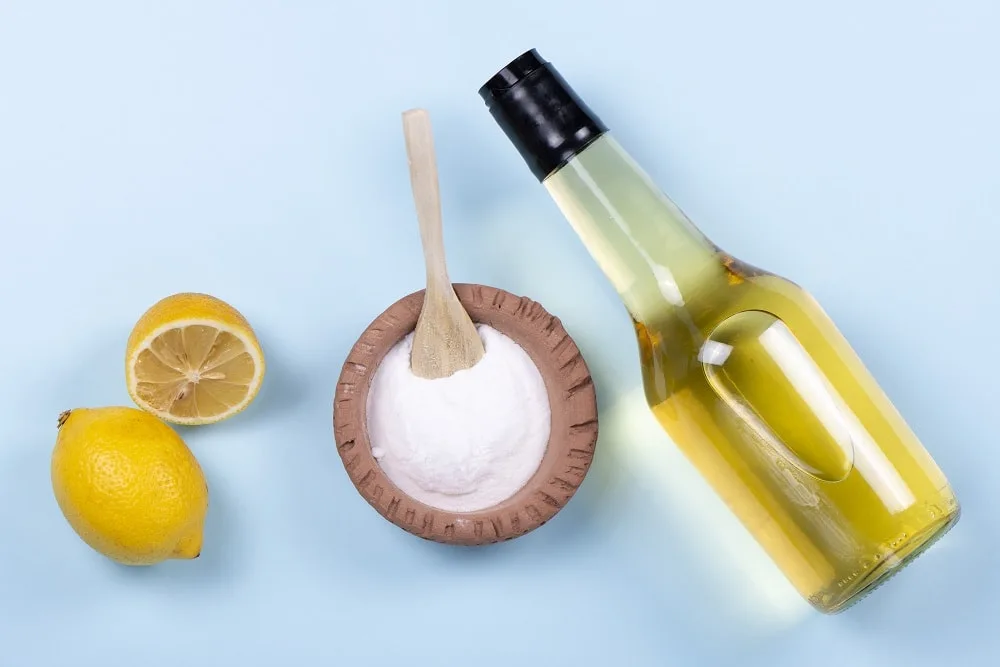
Yes! Apart from the greasiness that sometimes follows a dry shampoo treatment, these products can leave residues that don’t look great on your hair.
Are you concerned about the oil buildup and other residues from dry shampooing? Several homemade remedies can keep your hair clean, fresh, and healthy.
Here are some options to get rid of hair greasiness and dry shampoo buildup:
Use Clarifying Shampoo
Clarifying shampoo gives your hair a deep cleansing and offers an efficient way to eliminate dry shampoo buildup and any excess dirt. Use the product to deep-clean your hair at least once every two weeks.
But, avoid replacing your daily hair shampoo with this product, as it may cause dehydration in your hair.
Use an Apple Cider Vinegar Rinse
Dry shampooing can easily disrupt the pH value of your hair, causing it to have issues. To balance this, make an apple cider vinegar rinse using o clean up your hair of any dry shampooing buildup.
Use four parts of water for every single part of the mix (apple cider vinegar).
Use Baking Soda to Exfoliate Your Scalp
Another effective approach to eliminating dry shampooing buildup is by using baking soda to exfoliate your scalp and break down the residue.
Make a thick paste by combining water, baking soda, and your preferred hair conditioner, then massage it into your scalp. Allow the mixture to sit for 10 minutes before rinsing thoroughly with a gentle shampoo.
Rinse Using Lemon Juice
Lemon juice rinse is also an effective beauty hack to help you eliminate all the dry shampoo buildup from your hair.
Mix lemon and water and wash your scalp with the mixture. Leave the rinse for 10 minutes, comb it through, and wash it out.
What Are the Alternatives of Dry Shampoo To Get Rid of Greasy Hair?
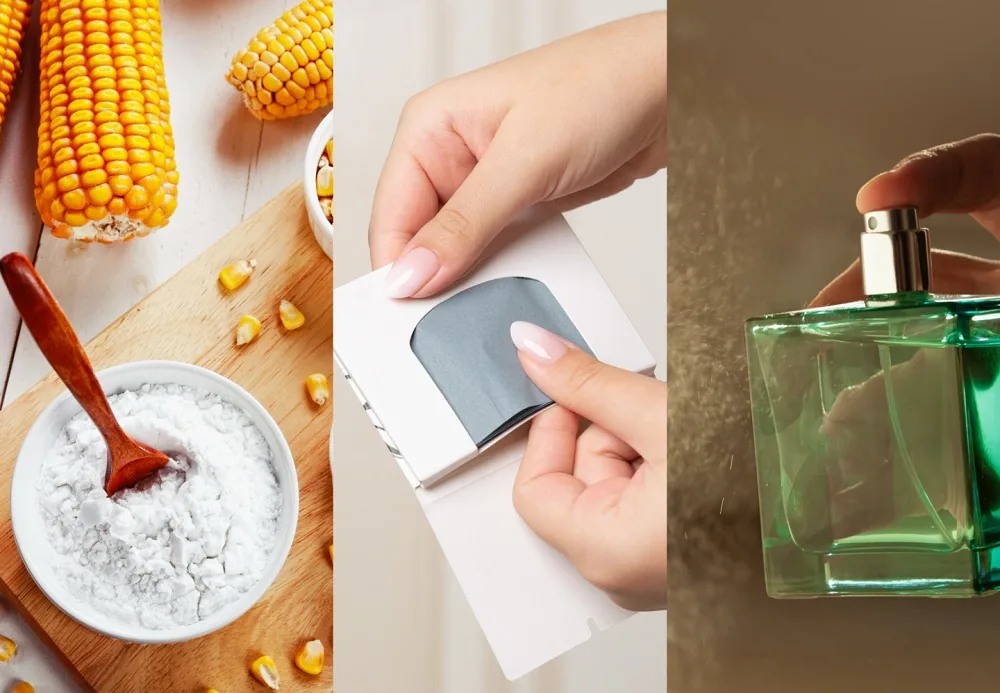
Dry shampoo is meant to help manage oily hair, but it can be disappointing when it doesn’t produce the desired results.
Understanding why dry shampoo makes your hair greasier and finding suitable alternatives is essential. There are countless options available, as people have been dealing with oily hair long before the invention of dry shampoo.
To address the issue of dry shampoo making your hair greasy, consider trying alternative products that provide the solution you’re looking for. Here are our top seven recommendations to explore:
- Hand sanitizer
- Arrowroot powder
- Cornstarch
- Apple cider vinegar
- Blotting papers
- Setting powder
- Perfume
Dry shampooing is an effective way to absorb excess oils from your scalp. But it can also make your hair greasy due to several reasons. Thankfully, there are numerous tips to keep the greasiness at bay and alternatives if the product makes your hair too oily.
